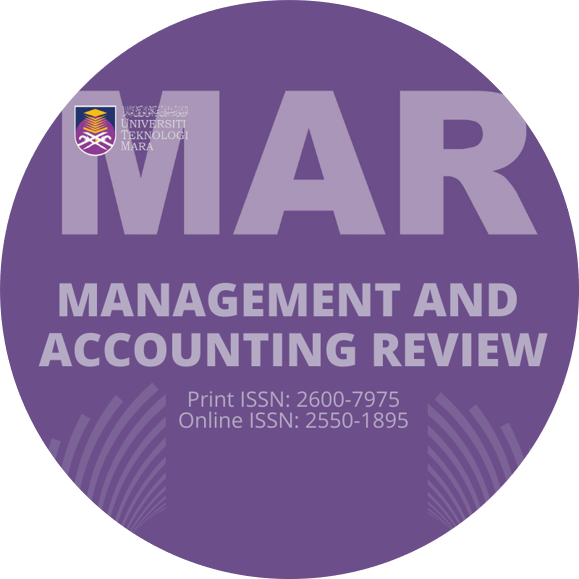Volume 22 No. 3, December 2023
ARTICLE INFO
Article History:
Received: 01 October 2023
Accepted: 30 October 2023
Available online: 01 December 2023
https://doi.org/10.24191/MAR.V22i03-19
Examining Performance of Islamic Banks in Bangladesh Using Stochastic Frontier Analysis and Maqasid Model
Md. Golzare Nabi1♣ , Md. Aminul Islam2,3, Shafiqur Rahman4 and Fausta Ari Barata5
1Chief Economist Unit (CEU), Bangladesh Bank, Bangladesh
2Universiti Malaysia Perlis (UniMAP), Malaysia
3Daffodil International University, Bangladesh
4International Open University, The Gambia
5University of 17 Agustus 1945 Surabaya-Indonesia
ABSTRACT
The current study uses the parametric Stochastic Frontier Approach (SFA) with the Maqasid Model, Performance Measures based on Maqasid al Shariah (PMMS) to empirically evaluate the performance of Bangladeshi Islamic commercial banks from 2005 to 2018. In accordance with the SFA model, Islamic commercial banks had an average cost efficiency value of 0.78 between 2005 and 2018, which was greater than traditional state banks' (0.781), but lower than local private banks' (0.879) and international banks' (0.969). This implies that Islamic and other commercial banks can save identical stage of output with the same quantity of resources. Under the PMMS Model empirical evidences show that Islamic banks experienced a low level of performance based on the Maqasid Index which ranges from 19.16% to 23.07%. The current article provides significant information on performance gaps of Islamic commercial banks and its determinants. The regulators, policy makers and managers can adopt necessary policy actions to improve performance of Islamic commercial banks from perspective of cost efficiency and welfare issue.
Keywords: Bangladesh, Cost efficiency, Islamic Bank, Maqasid al Shariah, Stochastic Frontier Approach





